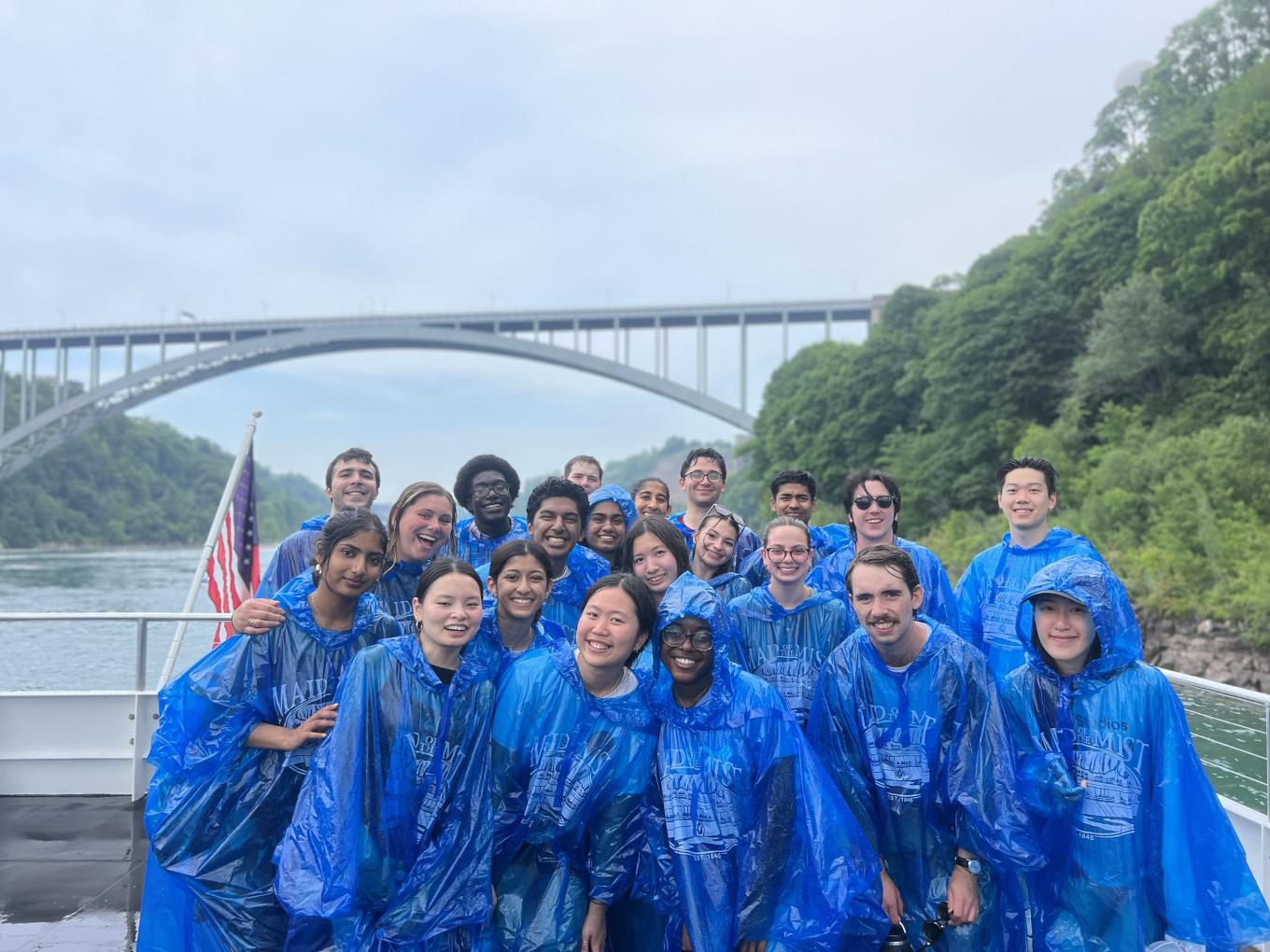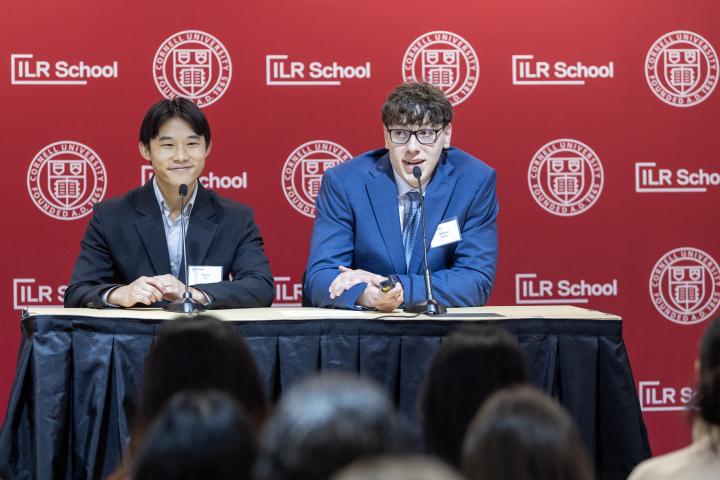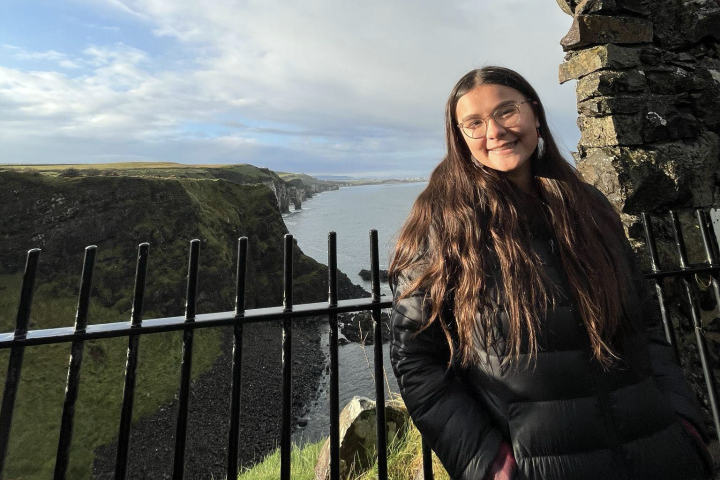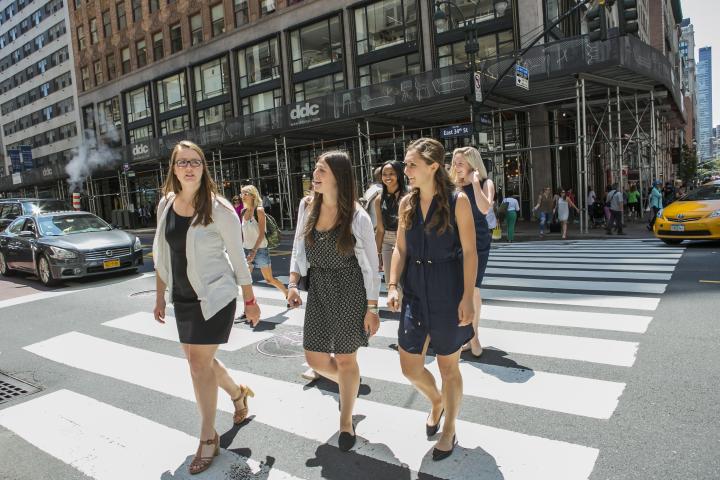High Road Buffalo Believes a Better World is Possible
In June, 23 students set off on Cornell ILR’s longstanding High Road Buffalo program, a two-month journey through Buffalo, NY’s neighborhoods, public spaces, politics, culture, economy and community.
Like the start of any journey, the destination feels far, unformed, abstract–a point below the horizon, a strange name on a map. On orientation day, joined by sponsors and guest speakers, High Road Coordinator Kricky Ksiazek clued the 17th High Road Buffalo cohort in on a secret: Where they’ll arrive in eight weeks’ time is not a place–they won’t stray far from Buffalo city limits–but a belief: that a better world is possible.
“Orientation day was incredibly inspiring,” said Yvette Wu. “I was struck by the warmth and cohesiveness of the Buffalo community–how people know one another and share such positive, affirming energy. It was powerful to witness so many individuals working across different fields like housing justice, immigration rights, labor organizing and criminal justice united by a shared commitment to social justice.”
Rene Cabrera was also “deeply moved and motivated during orientation. The energy in the room—the cheering, laughter and sense of camaraderie—made me feel more at ease and reminded me why I chose to be here. It was clear that this fellowship isn’t just about work; it’s about community and shared purpose.”
The High Roaders circulate in ever-widening circles of community. On Wednesdays, students convene for food and fellowship dinners, a chance to bond over barbecue and beverages. On Fridays, the students meet for group activities led by Cornell and collaborators. Monday through Thursday, they work at their sponsor organizations, interacting with the Buffalo community at large.
“Activism has a sort of ‘magical’ logic to it,” said Simeon Swaby, who is spending the summer working at Jericho Road Community Health Center. “It requires a lot of thinking out of the box and demanding things others would call unrealistic. While some may call this a drawback of this sort of work, I think it's its biggest strength. Because the times when you demand the impossible, and it comes to fruition, are the times when you proved it was possible all along.”
For Luke O’Brien, “Having a youthful energy and imagination is such an important thing in activism, where pragmatism can often stall the creativity that ever motivated you to strive for a better world.”
O’Brien will strive for a better world by working at Workers United NY & VT this summer. On day one, he’s already finding the work ‘constantly interesting’. “We have been picketing the Hyatt Regency hotel downtown and informing residents and passersby about the hotel’s union busting,” said O’Brien. “There were a lot of United Auto Workers staying in the hotel this week for a Ford joint safety convention. A lot of them came out in support of the Hyatt union and offered words of solidarity. It looks like Ford and the UAW will refuse to come to the Hyatt next year because of the union busting.”
Cabrera is spending the summer working at 1199SEIU, but has pushed their own understanding of community even outside the internship and Buffalo. “I’ve also been deeply involved in my hometown, responding to suspected ICE raids,” said Cabrera. “That involvement didn’t feel like a choice—it felt like a responsibility. I spent hours on Zoom calls, creating Facebook posts and groups, and talking with people from my community. The energy at first felt unfamiliar, since our Latino community has often been fragmented or disconnected. But even in that uncertainty, I felt a deep respect between us, and a sense of shared responsibility—what MLK might describe as being part of an ‘inescapable network of mutuality.’”
Wu’s work at the Jails Justice Network also immediately revealed this network of mutuality. “For the first time,” began Wu, “I was able to connect the statistics and theories I’ve studied in sociology classes to real people and stories. Many of our members are formerly incarcerated individuals or family members of those currently or previously incarcerated. Their commitment to this work is rooted in lived experience and deep frustration with a system that, as one colleague put it, ‘never had democracy.’ I was reminded that structural change in county jails is slow and often invisible. The progress is often measured not in weeks, but in years. This is their everyday reality: advocating persistently for legislative transformation, even when tangible results remain elusive.”
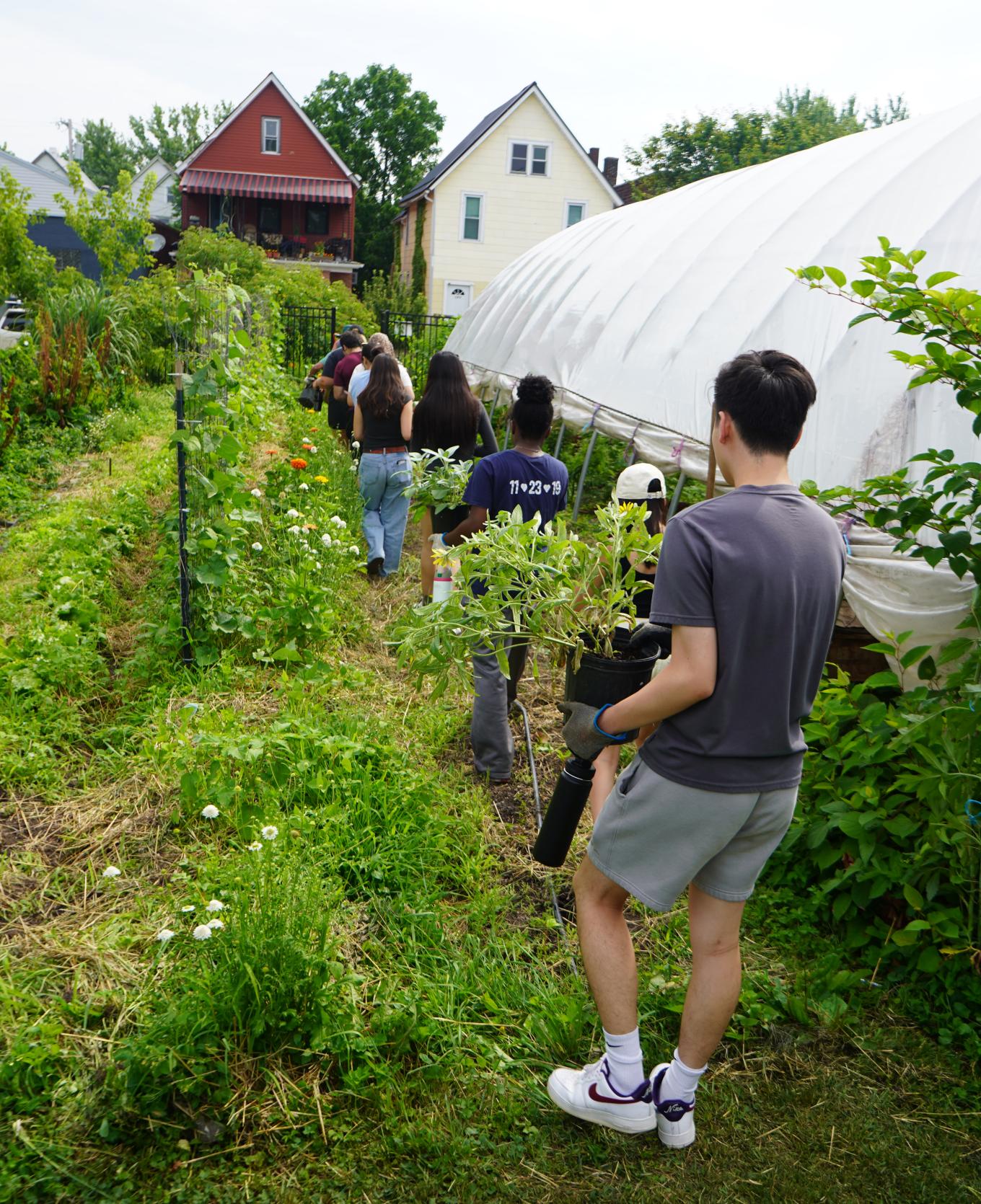
Here, then, is the key to taking, and, more importantly, staying, on the High Road: To believe that a better world is possible, even when it constantly shows itself otherwise, is to renew the belief each day through community and shared purpose. True belief, by definition, must be one of the most difficult things we do. Meaningful change should be difficult to fathom alone; it should ask us to rely on ‘magical logic,’ a ‘youthful energy,’ an ‘imagination,’ but most importantly, to take this journey together.
The High Road Buffalo journey has begun. One Friday further into June, 23 blue ponchos stand aboard a boat’s deck as it chugs closer to a wall of dense and foamy spray. The students can barely see the roaring Niagara above, blinded by the sound and fury, but they can feel it. They know it’s there, over the horizon, so they stand together breathing in the mist.
